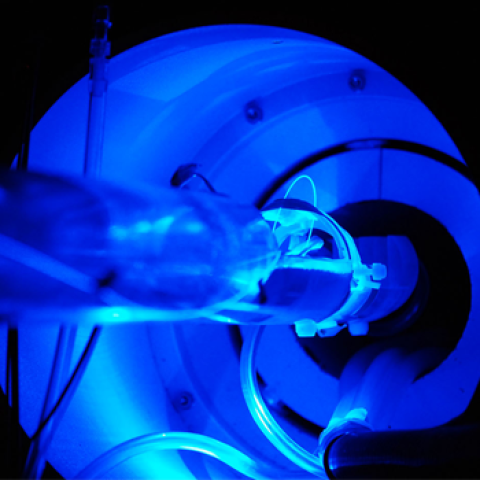Interdisciplinary Initiatives Program Round 7 - 2014
Jin Hyung Lee, Bioengineering, Neurology
Aaron Gitler, Genetics
Neurodegenerative diseases are increasing in prevalence with our aging population. There are virtually no treatments to any of these disorders. Although disparate in their clinical presentation, a unifying theme is the accumulation of misfolded proteins in the brains of patients afflicted with these diseases. An exciting new area in neurodegenerative disease research is the emerging phenomenon of prion-like spreading of neurodegenerative disease proteins. Prions are well established as the protein-based infectious agent underlying the spongioform encephalopathies. In these rare, albeit devastating, diseases the prion protein converts from the normal soluble form to the aggregated self-templating infectious form. This process initiates an inexorable spread of pathology and contingent neurodegeneration throughout the brain. But could this disease mechanism extend to the more common neurodegenerative diseases like Parkinson’s disease (PD) and Alzheimer’s disease? If so, it represents a game changer in terms of understanding disease mechanisms and opens many new avenues for therapeutic development. However, any therapeutic or mechanistic investigation into prion-like spreading will require the development of powerful new imaging approaches to track the path of prion-like spread and understand how these protein aggregates alter the brain function as they spread. We will need to understand why they take some routes but not others and how this impacts brain function. To address this challenge, we have formed an interdisciplinary team, consisting of an engineer and a geneticist. First, we will innovate genetically encoded sensors of prion-like protein propagation for use in live animals to monitor these aggregates as they spread from one neuron to the next, tracking their paths, figuring out why they take some routes but not others. Then, we will utilize the advanced high-resolution optogenetic functional magnetic resonance imaging (ofMRI) to reveal the longitudinal effects of prion-like spreading on brain network activity. Our experiments will provide fundamental mechanistic insight into prion-like spread of neurodegenerative disease. The tools we apply and the lessons we learn will likely be broadly applicable to other neurodegenerative diseases.



